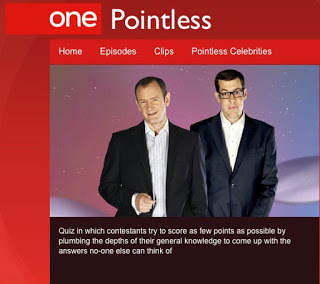date newest »
newest »
 newest »
newest »
 Jim wrote: "perhaps it's time we had a bit less arts/sciences inequality
Jim wrote: "perhaps it's time we had a bit less arts/sciences inequality I'd go farther, and say we should have less intellectual inequality.
How is it that the 'arts' side of the divide consider lack of c..."
Have you specific examples of this?
 I'll give a personal one from 1992.
I'll give a personal one from 1992. My wife defended her PhD dissertation at Purdue ("American Studies" - "multidisciplinary"). Her advisor had to twist arms - appealing to "academic standards" saying "come on, she did the work".
Need I add that every one of those morons "edited" her paper - should have been a rubber stamp by that time.
The paper was about Irving Babbit - circa 1860-1930 - an "anti-Rouseauean" (forgive the spelling). The "liberals" on that committee boxed him in as a "conservative". They thought they should deny the doctorate because that didn't "agree" with Babbit.
More broadly, we are swimming in a lack of critical thinking in the "Press". Many news articles give the so-called "both sides of the story" - two opposing advocates - sometimes extreme - both full of $#!T - given voice with no filtering by the "journalist". Actually the filtering is often done behind the scenes - if the advocate roughly fits the world-view of the writer it "passes muster".
Surely as a science writer you see this every day.
 Let me add that my wife's advisor, in his 1963 dissertation, was suffused with irony - giving the audience mostly what they wanted.
Let me add that my wife's advisor, in his 1963 dissertation, was suffused with irony - giving the audience mostly what they wanted. (imagine that science would only admit what scientists "want")
 Jim wrote: "Let me add that my wife's advisor, in his 1963 dissertation, was suffused with irony - giving the audience mostly what they wanted.
Jim wrote: "Let me add that my wife's advisor, in his 1963 dissertation, was suffused with irony - giving the audience mostly what they wanted. (imagine that science would only admit what scientists "want")"
I absolutely agree about a lack of critical thinking in the press etc. It was just the 'badge of honour' part I hadn't particularly come across for critical thinking - definitely for not knowing anything about science, though.
 And no comment on those so-called professors?
And no comment on those so-called professors? Every one of them used the dissertation to reflect their precious world-views - larded up a narrowly-focused paper on Babbit's philosophy.
When I found out about how it went there, I determined that if I were to enter graduate studies in, for example, history - I'd issue a Request For Proposal (something I'd already done as an Engineer). Let them tell me WHY I should pay in dollars and sweat.
Part of the RFP would come with a check and a paper requesting a grade and a markup. Idea would be to see what "standards" the professors (or the graders - TA's would be OK) have to evaluate a paper. Of course, the check would be to pay for the markup (since I don't work for free, either).
Maybe two checks - the bigger one for an actual "credentialed" professor.





I'd go farther, and say we should have less intellectual inequality.
How is it that the 'arts' side of the divide consider lack of critical thinking to be a "badge of honour"?
(expand "arts" to "liberal arts")